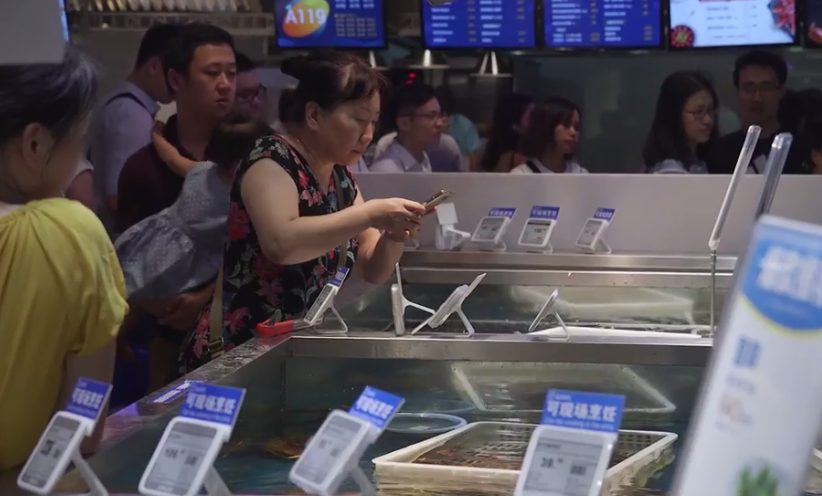Chinese retail giant Alibaba is known largely for its e-Commerce marketplaces and its payments platform Alipay. But the nearly $400 billion company also is quietly building out a brick-and-mortar presence, opening up 13 Hema supermarkets in China since 2015.
The brick-and-mortar initiatives have for the most part flown under the radar, but they are serving as labs for Alibaba’s “New Retail” strategy. Alibaba Group CEO Daniel Zhang noted in a statement that Hema “leverages data and smart logistics technology to seamlessly integrate online-offline systems, built to provide the unparalleled service of fresh food deliveries in 30 minutes.” The Hema supermarkets are designed to cater specifically to mobile consumers, particularly within a three-kilometer radius, to ensure fast, high-level service.
Many retailers are still figuring out how to effectively integrate their online and offline channels to create a unified customer experience, but Alibaba is showing that a strong foundation in data analysis and backend technology is a necessity for it to happen. Like Amazon, Alibaba has had the advantage of expanding from its e-Commerce-only roots to position itself as a technology company.
Few retailers have been able to bring delivery times down to the 30-minute zone. Alibaba’s investment in its fulfillment technology shows that to accomplish this goal, more locations need to take on the additional role of warehouses that can deliver products to consumers quickly. Customer data is pivotal in the execution of these fulfillment processes: Hema logs every purchase and saves all shopper preferences and then uses location-based machine algorithms to plan the quickest delivery routes.
Alibaba Creates A Supermarket For The Mobile-First Consumer
Since the Hema supermarkets are built with the mobile user in mind, customers must first download the Hema mobile app — which links to the customer’s Taobao or Alipay account — when entering the store.
Every product in the store features a scannable bar code that provides extensive information about the item (e.g. origin, backstory and product recommendation suggestions).
Thus far, the experiment seems to be effective. The stores’ sales per unit area are 3X to 5X those of other supermarkets, with each store fulfilling “thousands of orders a day,” according to Alibaba. In its first two years of operations, Hema has reported a conversion rate of 35% (once the customer opens the app), with 50% of all orders coming via online media. This percentage increases to as high as 70% in one of the oldest Hema supermarkets in Shanghai Jinqiao. Customers make 4.5 purchases a month on average and shop 50 times a year.
Customers also can shop from home, ordering fresh food to cook at home or having it prepared by the Hema chefs and delivered within 30 minutes, according to the retailer. But shoppers also can pick out their own fresh foods that are then cooked to order within the supermarket, and then either take it home or eat it at the store’s dining area.






